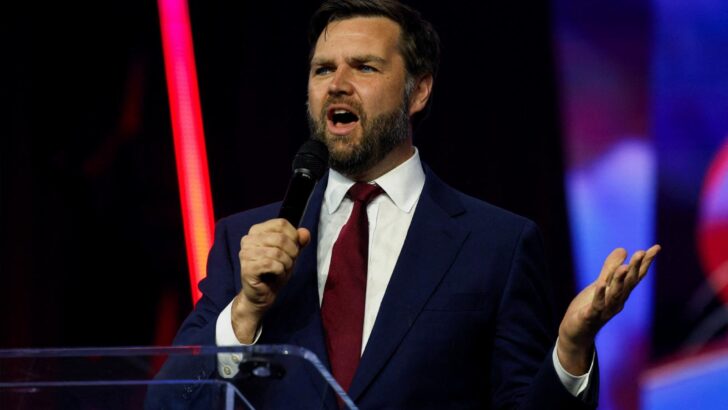Catholics in US politics has always been an interesting subject. Famously, John F. Kennedy was the first Catholic President of the United States and had to overcome significant prejudice from a country who had – and in some ways continues to have – a suspicion of the Catholic Church and the fears of it being ‘ultramontane’.
Joe Biden became the 2nd Catholic US President upon his inauguration in 2021 and the issue of his religion was far less of an issue of concern which reflects the general trend towards a secularised State which accelerated since the turn of the Millennium.
If anything, it has not been Protestants or secularists who have been concerned with President Biden’s religion, but rather Catholics themselves, with many conservatives vilifying him for his support for policy that is odds with the Catholic faith.
Mike Pence, Donald Trump’s Catholic Vice President suffered from greater attention on his religion because of his espousal of conservate Christian perspectives. Donald Trump has taken a Catholic as his Presidential running for this year’s election.
JD Vance, the best-selling author of A Hillbilly Elegy, chronicling life in the fly-over rust-belt of left-behind America, converted to Catholicism in 2019, after coming from a long line of culturally Protestant Scots-Irish Americans from Appalachia.
Speaking to The American Conservative after his Baptism, Vance outlined briefly the interaction between his Catholic faith and his politics:
“My views on public policy and what the optimal state should look like are pretty aligned with Catholic social teaching. That was one of the things that drew me to the Catholic Church. I saw a real overlap between what I would like to see and what the Catholic Church would like to see. I hope my faith makes me more compassionate and to identify with people who are struggling.”
This is a relatively easy answer. There is almost 100% overlap between what an ordinary reasonable citizen considers to be ‘decent’ social policy and Catholic Social Teaching. Where the rubber meets the road is in the contested areas – where Catholic teaching does not fit so easily with the progressive zeitgeist.
Asked about abortion in the cases of rape and incest, Vance said: “Look, I think two wrongs don’t make a right. At the end of the day, we’re talking about an unborn baby … What kind of society do we want to have? A society that looks at unborn babies as inconveniences to be discarded?”
More recently, Vance has equivocated, aligning his public positions on abortion with those of Donald Trump, who has said he wouldn’t sign a federal limitation on abortion and that he wouldn’t ban abortion pills.
Vance gave some insights into the compromises that [he feels] are necessary in the public sphere in The American Conservative interview.
“When you’re trying to do things that make you liked by as many people as possible, you’re not likely to do things that are consistent with the teachings of the Catholic Church,” Vance said then. “I’m a Christian, and a conservative, and a Republican, so I have definite views about what that means. But you have to be humble and realise that politics are essentially a temporal game.”
This may sound like reasonable pragmatism where a politician may take public positions at odds with his/her private conscience.
But Pope Benedict XVI said, highlighting those contested areas in particular:
“Worship pleasing to God can never be a purely private matter, without consequences for our relationships with others: it demands a public witness to our faith. Evidently, this is true for all the baptised, yet it is especially incumbent upon those who, by virtue of their social or political position, must make decisions regarding fundamental values, such as respect for human life, its defence from conception to natural death, the family built upon marriage between a man and a woman, the freedom to educate one’s children and the promotion of the common good in all its forms. These values are not negotiable.”


 Sen. J.D. Vance, R-Ohio, speaks at a June 16 event held by the national conservative political movement, "Turning Point" in Detroit. On July 15, former President Donald Trump named Vance as his running mate on the Republican ticket in November. (OSV News photo/Rebecca Cook, Reuters)
Sen. J.D. Vance, R-Ohio, speaks at a June 16 event held by the national conservative political movement, "Turning Point" in Detroit. On July 15, former President Donald Trump named Vance as his running mate on the Republican ticket in November. (OSV News photo/Rebecca Cook, Reuters) 